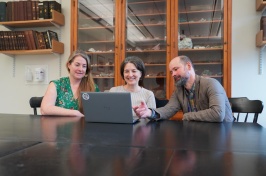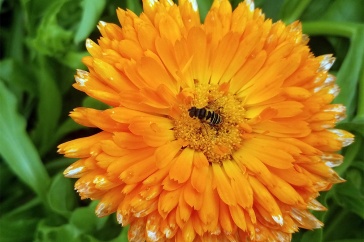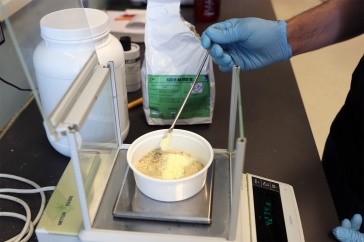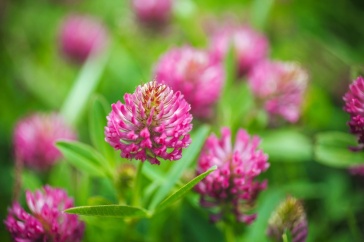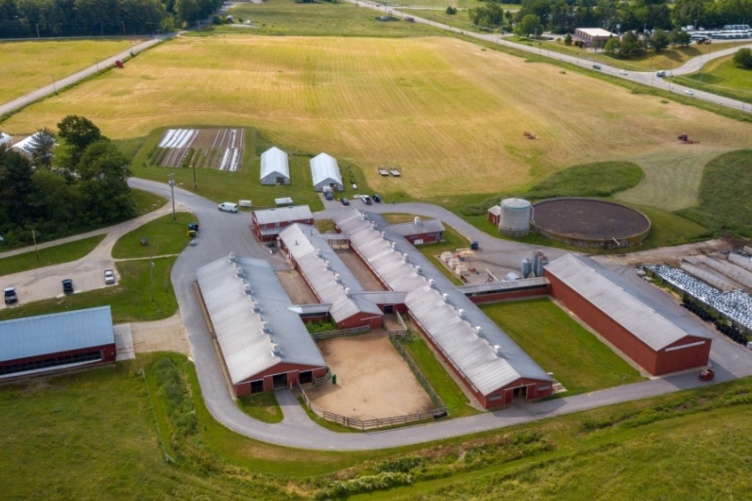
UNH Fairchild Dairy Teaching and Research Center. Credit: Scott Ripley/UNH

DURHAM, N.H. –– The Fairchild Dairy Teaching and Research Center and the Organic Dairy Research Farm, both facilities of the NH Agricultural Experiment Station at the
University of New Hampshire, have been awarded 2019 Quality Milk Awards from the nationally recognized nonprofit dairy farmers cooperative Dairy One. Less than one quarter of Dairy One’s member herds received the designation in 2019.
“Thank you for your continued dedication to the production of high quality milk. Such an accomplishment sets an industry standard of excellence for milking procedures and herd management,” said James Zimmerman, general manager of Dairy One.
The research herds at both dairies and the student-run CREAM herd were recognized for consistently producing milk with a low somatic cell count throughout the year. Dairy herds with a low somatic cell count tend to be more healthy and profitable since they have reduced treatment and veterinary costs for mastitis, which is the most common and costliest disease for dairy cattle. Healthy herds have higher milk production per cow and receive higher prices for their milk. In addition, milk with lower somatic cell counts has a longer shelf life and results in a higher yield of cultured dairy products.
The Fairchild Dairy Teaching and Research Center develops new knowledge and management expertise geared directly toward many state and regional stakeholders. It houses about 90 milking-age Holstein cows and approximately 70 growing, replacement animals. Included in that number is the 20-cow, student-managed herd, with the remaining animals devoted primarily to research in the area of dairy nutrition and reproductive biology. Cows at the Fairchild Dairy Teaching and Research Center produce an average of about 26,000 to 27,000 pounds of milk per cow per year, which is greater than the national average of about 22,000 pounds per cow per year.
The Organic Dairy Research Farm, first of its kind at a land-grant university, is home to approximately 100 registered Jersey cows, heifers, and calves and is managed as an integrated agro-ecosystem that includes biological, physical and human-related components. Experiment station scientists conduct research at the farm that serves the organic dairy community, including studies on dairy nutrition and feeds, pasture quality, forage production, compost production, and management of the associated streams, soils, woodlands, and other natural resources.
Both dairy farms have long been recognized for quality milk and operations.
Dairy One is a farmer-owned cooperative nonprofit with a core DHIA membership of approximately 4,600 dairy farmer members throughout the Northeast and Mid-Atlantic region. Dairy One is closely aligned with Dairylea Cooperative and Dairy Farmers of America.
Founded in 1887, the NH Agricultural Experiment Station at the UNH College of Life Sciences and Agriculture is UNH’s original research center and an elemental component of New Hampshire's land-grant university heritage and mission. We steward federal and state funding, including support from the USDA National Institute of Food and Agriculture, to provide unbiased and objective research concerning diverse aspects of sustainable agriculture and foods, aquaculture, forest management, and related wildlife, natural resources and rural community topics. We maintain the Woodman and Kingman agronomy and horticultural research farms, the Macfarlane Research Greenhouses, the Fairchild Dairy Teaching and Research Center, and the Organic Dairy Research Farm. Additional properties also provide forage, forests and woodlands in direct support to research, teaching, and outreach.
The University of New Hampshire is a flagship research university that inspires innovation and transforms lives in our state, nation and world. More than 16,000 students from all 50 states and 71 countries engage with an award-winning faculty in top ranked programs in business, engineering, law, liberal arts and the sciences across more than 200 programs of study. UNH’s research portfolio includes partnerships with NASA, NOAA, NSF and NIH, receiving more than $100 million in competitive external funding every year to further explore and define the frontiers of land, sea and space.
-
Written By:
Lori Wright, '06G | NH Agricultural Experiment Station | lori.wright@unh.edu | 16038621452

































